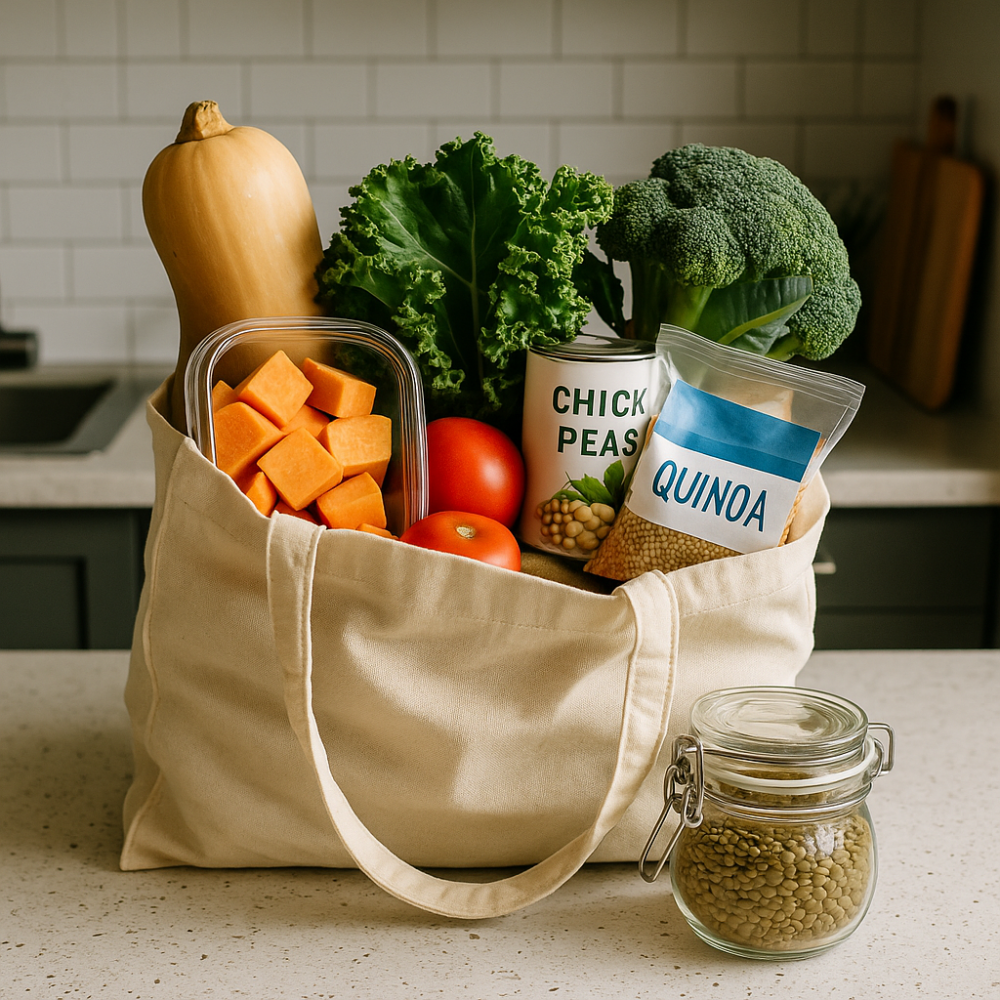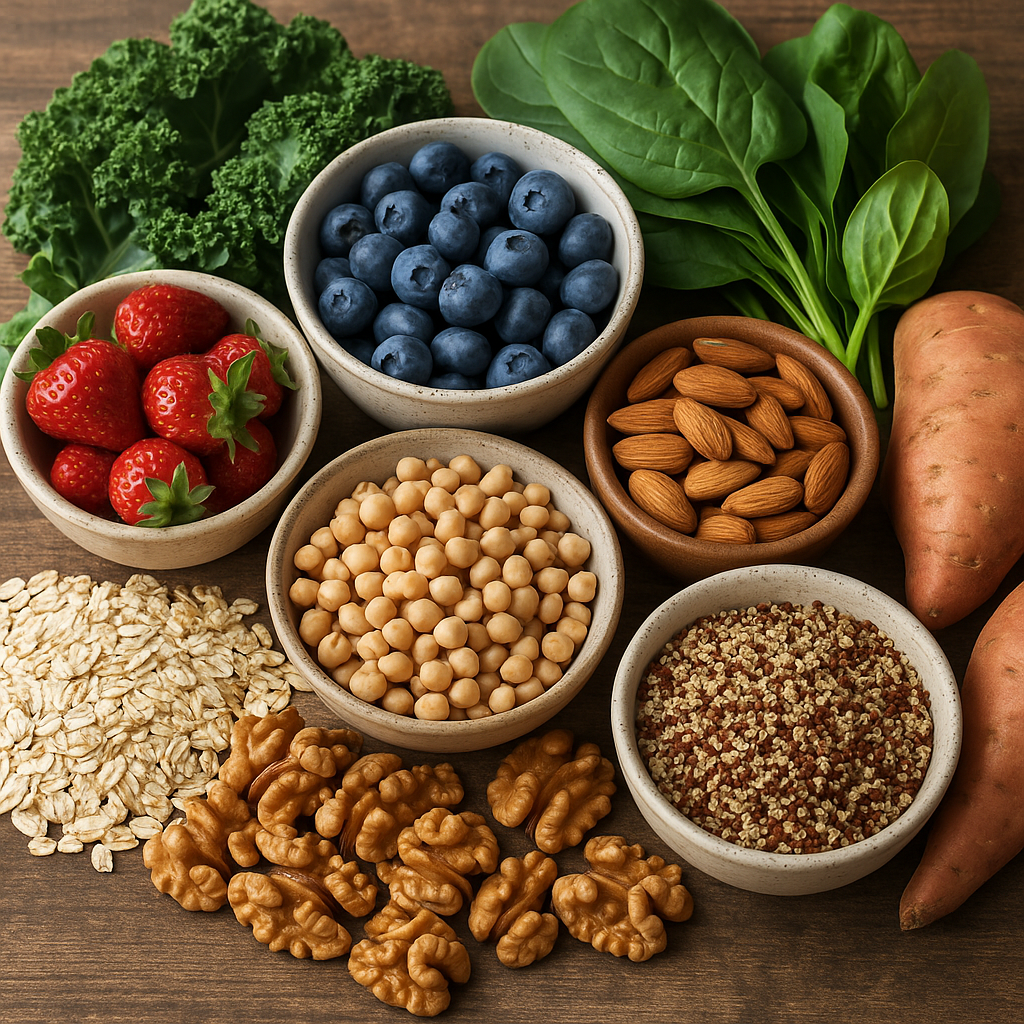Alright, kicking things off with some clarity: what exactly is plant-based eating, and why’s it all the rave among health-conscious folks, especially those focusing on aging gracefully? Plant-based diets are all about focusing on foods derived mostly from plants. This includes not only fruits and veggies but also nuts, seeds, oils, whole grains, and beans. It’s about choosing plant foods most of the time, but it doesn’t mean you can’t ever have meat or animal products.
Now, here’s a fun fact: plant-based and vegan diets aren’t the same thing. While vegan diets cut out all animal products, plant-based eating is more flexible. You focus more on plants but can still enjoy animal products in moderation. So, if you’re considering cutting back on too many rules and just want more greens in your diet, plant-based might be your go-to.
Speaking of older adults jumping on the trend, there’s a good reason. The benefits of plant-based eating make it an ideal choice for those in their golden years. Apart from being heart-friendly and helping with weight management, it packs in nutrients that support your bones, digestion, and even your mood.
Studies have shown that folks who go plant-based can add years to their life, but it’s not just about living longer; it’s about living well. We’re talking improved mobility, better mood balance, and sharper cognitive function, all adding up to a quality life as the years roll on.
Nutritional Powerhouses: The Best Plant-Based Foods for Ages 50+
So, what should be front and center on your plate if you’re aiming for healthy aging? Plant-based foods that are nutrient-dense, of course. These foods pack a punch when it comes to essential nutrients that keep you feeling your best as you age.
Let’s talk superfoods. These bad boys are your best friends when aiming for anti-aging benefits. Think leafy greens like kale and spinach, which are loaded with vitamins. Or berries, which aren’t just pretty on top of your morning cereal; they’re antioxidant-packed powerhouses helping to keep your memory sharp and immune system strong.
Speaking of antioxidants, they’re incredibly important when fighting off those gnarly age-related diseases. Antioxidants found in foods like beans, nuts, and sweet potatoes help combat free radicals. It’s like having a defense team on standby to keep cells healthy and functioning optimally.
We all want to keep that pep in our step, right? Enter plant-based diets, which are fantastic for naturally boosting your energy levels. Complex carbs from whole grains, proteins from legumes, and healthy fats from nuts and seeds make sure you’ve got all-day energy, without the sluggish aftermath you’re probably looking to avoid.
Scientific Evidence: How Plant-Based Diets Impact Aging
The impact of a plant-based diet on aging is backed by a growing body of research. Studies show that individuals on a plant-based diet often experience improved brain health and function. Plant-rich diets are associated with a lower risk of cognitive decline as we get older, likely due to their high content of antioxidants and other brain-friendly nutrients like folate and vitamin K.
When it comes to managing chronic illnesses, plant-based diets are incredibly effective. They’re linked to lower risks of conditions such as heart disease, type 2 diabetes, and certain cancers. This is partly because plant-based diets are generally high in fiber and low in saturated fats, both of which are known to improve heart and metabolic health.
Inflammation is the root of many age-related ailments, and plant-based diets can play a significant role in reducing it. By emphasizing anti-inflammatory foods like beans, nuts, olive oil, and fruits, you can help your body combat the inflammation that tends to increase as we age.
Heart health is a significant concern as we age, and guess what? Plant-based diets shine here too. They help reduce the risks of developing hypertension and heart disease. The fiber in whole grains, fruits, and vegetables helps keep cholesterol in check, while the abundance of phytonutrients supports overall heart health.
Practical Tips: Transitioning to a Plant-Based Diet as You Age

Making the switch to a plant-based lifestyle doesn’t have to be overwhelming. Start small, introducing more plants into your meals gradually. Maybe swap out one meal a day, focusing on adding hearty beans or a colorful salad, seeing how your body feels and adjusting as necessary.
Meal planning is your new best friend. For those of us looking to keep it simple and nutritious, dedicating a little time each week to plan your meals makes a world of difference. Prioritize whole grains, fresh veggies, and legumes. This planning can help save money and reduce food waste, too.
Grocery shopping can be an adventure when you’re building a plant-powered pantry. Focus on seasonal produce for the freshest flavors and nutrients. Don’t forget canned or frozen options either—they’re perfect for convenience and can be just as healthy.
Challenges can pop up along the way, but don’t let them stop you. Social settings might seem tricky at first, but offer to bring a plant-based dish or choose venues with diverse menus. Nutrition concerns? Ensure you’re not missing out on key nutrients like vitamin B12 or omega-3s—they’re essential, but supplementation might be helpful.
Building balanced meals means paying attention to varied sources of protein. You’ve got lentils, chickpeas, tofu, and quinoa—all power-packed with protein. Don’t skimp on them while crafting your meals. These foods help create satisfying, nutritious dishes that’ll be great for your well-being.
Real-Life Success Stories: Inspirations from Plant-Based Pioneers
Hearing directly from those thriving on plant-based diets can be truly inspiring. Many seniors have embraced this lifestyle, experiencing significant improvements in their health, energy, and zest for life. Their stories offer real-world insights on what works and what doesn’t, providing invaluable pointers for anyone considering this way of eating.
Take, for instance, Henry, who at the age of 72, switched to a more plant-focused diet after being diagnosed with high blood pressure. His shift to whole grains, leafy greens, and loads of fresh fruit not only helped him drop his blood pressure but gave him a renewed energy he hadn’t felt in years.
Connecting with community groups can be incredibly supportive. There are vibrant plant-based communities, both online and offline, where people share experiences, recipes, and advice. These groups often host potlucks, meal swaps, and cooking classes proving that eating plant-based doesn’t mean dining alone.
Long-term plant-based eaters often share a common lesson: patience and personal experimentation are key. Everyone’s body responds differently, and it can take a bit of time to find precisely what works best for you. Adapting to seasonal foods or local availability might be part of the journey, but flexibility in approach often leads to success.
I encourage everyone to share their own stories and challenges. Your experiences not only bolster our understanding but can be immensely encouraging to someone just starting out. If you’re thriving on a plant-based diet, becoming a mentor or sharing your journey can spark this positive change in others, building a stronger, healthier community.
Here are some links to related information that can be found here:
- For a full-body approach to wellness as you age, check out Grandpa’s guide to staying fit and healthy in your 60s and beyond.
- Pairing a plant-based diet with high-protein foods for seniors can help maintain muscle strength.
- Curious about the opposite end of the nutrition spectrum? Explore the carnivore diet for seniors.







Leave a Reply